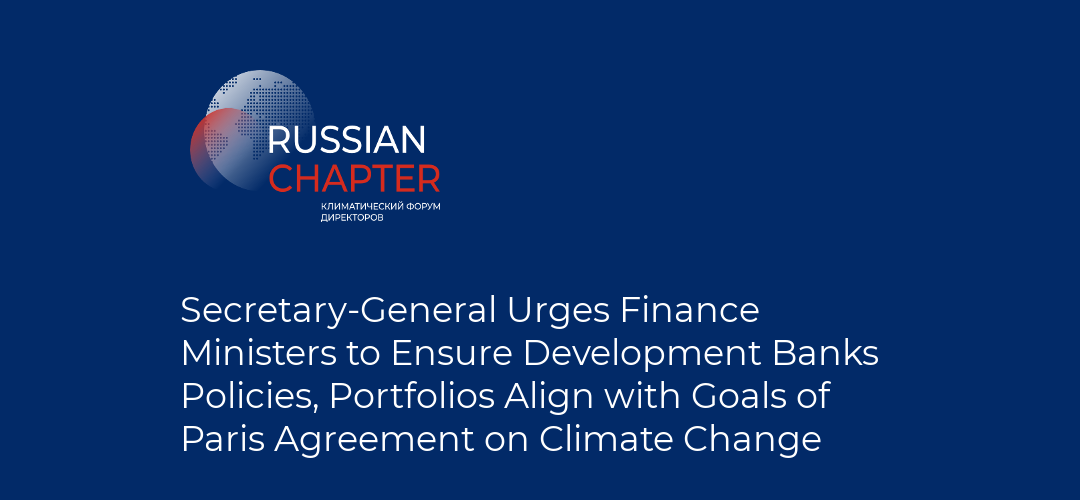Following are UN Secretary-General António Guterres’ remarks to the fourth meeting of the Coalition of Finance Ministers for Climate Action, today:
The COVID-19 pandemic has upended lives and economies around the globe. Yet it also presents an important opportunity. The COVID crisis is a dress rehearsal for the even greater climate emergency faced by all nations.
Your leadership is crucial for charting a recovery that will accelerate the decarbonization of the global economy and build a more inclusive and resilient future. Your recovery plans will determine the course of the next 30 years.
The world needs your leadership in five important areas. First, you must serve as models and advocates for a green recovery. Governments need to align COVID recovery and stimulus plans with the goals of the Paris Agreement on Climate Change.
That means investing in green and decent jobs. Do not bail out polluting industries. End fossil-fuel subsidies. And take climate risks into account in all financial and policy decisions.
I am encouraged by measures in your Santiago Action Plan to embed climate goals, such as carbon pricing and subsidies for renewable energy, into macroeconomic policies and recovery measures.
But more is needed. Greenhouse gas emissions need to fall sharply and permanently. Coal should not be part of any recovery plans. And Governments should secure Paris-aligned commitments from high emitting sectors, such as shipping, aviation and heavy industry, prior to providing bailout support.
Second, I urge all members of this coalition to commit to achieving carbon neutrality before 2050 and to submit more ambitious nationally determined contributions before the twenty-sixth United Nations Climate Change Conference of the Parties (COP 26).
Many of you, including the European Union and Chile, have either announced or submitted enhanced nationally determined contributions. We need all of you, through your nationally determined contributions and net zero plans, to send a clear and unambiguous signal to markets that the decarbonization of the global economy is inevitable.
Third, ministers of finance working with central banks and financial regulators must ensure that every financial decision takes climate risks and opportunities into account. This includes improving the quality and quantity of climate-related financial disclosures, ensuring that the financial sector can measure and manage climate-related financial risks and creating approaches and frameworks for measuring portfolio alignment with the transition to net zero.
Fourth, international cooperation and solidarity must be part of the recovery. Debt sustainability measures will be essential for all to recover together. I invite public and private creditors to explore debt sustainability measures beyond the expansion and extension of the Debt Service Suspension Initiative to benefit countries in dire need of liquidity and support, including through measures like debt for climate swaps.
Finally, as financial authorities, you own stakes in national, regional and multilateral development finance institutions and help to shape their strategic direction. I urge you to use your voice and voting power to ensure that, by COP 26, all national, regional and multilateral development banks agree to align their policies, portfolios and pipelines with the 1.5°C goal of the Paris Agreement.
This will mean an end to new coal power plants and a phasing out of fossil fuel investments; more ambitious climate finance goals and targets; increased support for adaptation and resilience for the most vulnerable; and rapidly scaled up investments in renewable energy. The upcoming Finance in Common Summit will provide an opportunity to take decisive action to advance this. We need speed, scale, and decisive leadership. I count on this coalition to rise to the challenge. Thank you.


